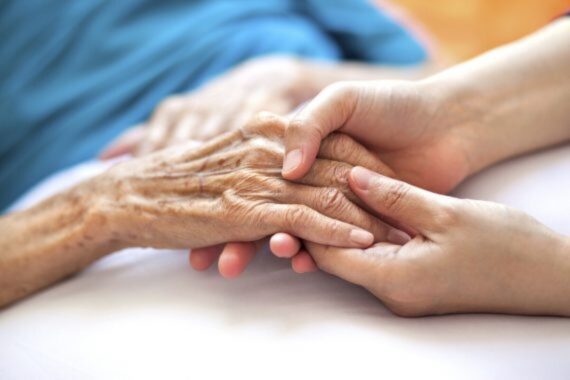GPs will require additional training to be able to fully support patients should the assisted dying bill pass, England’s chief medical officer has told MPs.
Today, MPs heard evidence and advice from experts as part of the committee stage of the bill, which would allow terminally ill adults to end their lives.
The proposed legislation, which was introduced as a private members bill and backed by MPs in November, requires the participation of two doctors who assess terminally ill adults and sign off on the decision.
When asked about specific training for healthcare staff should the bill pass, chief medical officer for England Professor Sir Chris Whitty said that GPs taking part in all stages of the process would require additional training.
Professor Whitty said: ‘I think it is much more likely that a very large number of doctors and nurses may get involved in the very earliest stages, because someone may raise an issue with their GP, with their nurse, with their consultant, and they need to have the basic understanding for that.
‘When it comes to the more detailed later stages, that, in my view, will require some specific training.
‘And I think there will be a gradation, in my view, of doctors – ones that are happy to have the general initial conversation, ones who are happy to have the structured conversation that follows, and a minority of those who will be happy to go on to take part in the final stages.
‘It is very important that both the wishes of the patient are respected, and that is the central point of this, we must start with someone in their last six months of life and their immediate family, what’s good for them.
‘But we must also make sure that the wishes of healthcare professionals around this area are absolutely protected.’
BMA ethics committee chair Dr Andrew Green, a retired GP, also gave evidence to the committee earlier this morning.
The BMA has previously reiterated its ‘neutral’ position on the issue of assisted dying, but emphasised the need for ‘absolute freedom of choice for doctors as to whether they participate or not’.
Dr Green said: ‘It’s important that doctors should be able to opt out of any stage of this. There are doctors who would find it difficult to do that, and it’s important that their position is respected.’
He also emphasised that doctors involved in the later stages of the process would need specific ‘capacity and coercion’ training.
He added: ‘Certainly we would expect capacity and coercion training to be part of the specialised training that doctors who opt in would go for, and I would anticipate that the general safeguarding training should be sufficient for other doctors who would only be involved at that very early stage.’
It comes as the RCGP has launched a survey to establish a position on assisted dying following the bill’s progress in Parliament.
The RCGP is in the process of reviewing its position on whether or not assisted dying should be legal across the UK and its survey is open to all members who are eligible to work or have previously worked as a GP in the UK, one of the Crown Dependencies or the Republic of Ireland.
In an update to members last week, RCGP chair Professor Kamila Hawthorne said: ‘In November 2024, our council decided that as part of this process, we should conduct a member survey.
‘The results of this will be presented to council to help inform their decision about the position that RCGP should take.
‘Please spare five minutes to complete this survey. We need to hear views from as many members as possible to inform council’s next steps.’
Meanwhile, the Royal College of Physicians (RCP) also has a ‘neutral position’ on assisted dying, which was adopted in 2019 following a member survey.
However, the RCP said it will consider how it will engage with the parliamentary process regarding ‘issues around implementation’.












Faced with the inevitability of assisted dying becoming law, opponents have resorted to bureaucratic obstructionism; two doctors, a judge, now training requirements and delays.
This law is built on sand because it states ‘terminal illness’ can be diagnosed at 6 months from death. We all know this is not possible as some patients live for years with metastatic disease and chronic illness, others far less. The risk is clear ahead- our elderly poor in care homes will kill themselves to avoid being a burden socially and financially. The state will help them do it- we’ve been here before in history. The poorer and disadvantaged will die before their time robbing their families of precious moments and the rich entitled will get the choice. Why can’t our ‘ experts ‘ and MPs see this?